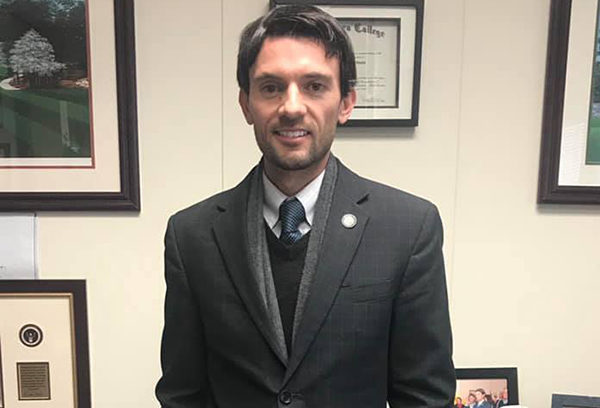State Rep. Jon Hardister is drafting legislation for introduction in 2019 that’s meant to help prevent school-age children from falling victim to human trafficking – a problem Hardister and an increasing number of others say is a fast growing threat in North Carolina.
Hardister said he’s been conferring in recent weeks with potential co-sponsors of the bill that would better equip youngsters across the state to identify and confront threats of sexual abuse and trafficking.
“It’s become a major problem,” Hardister said this week of the illegal trade in which victims – usually young, poor and female – are kidnapped or coerced into prostitution.
Hardister said he’s conferring with Erin Merryn, a victim of childhood sexual assault who’s leading a national movement against human trafficking, sexual abuse and child exploitation. He said he plans to get Merryn to speak in Raleigh and perhaps in Guilford County.
Thirty-five states have adopted some form of “Erin’s Law,” which requires schools to teach a prevention-oriented program on sexual abuse and trafficking.
Hardister said the effort in North Carolina was previously being led by State Rep. Bill Brawley, who represented the Charlotte area.
“Unfortunately, he wasn’t reelected,” Hardister said of Brawley’s defeat in November.
After Brawley lost the election, Abolition NC, a non-profit that seeks to thwart human trafficking, approached Hardister to see if he would take on the fight.
Hardister said that he had been familiar with the issue but had not dug deep into it at that point. He said the more he learned the more concerned he became. He said medical insurance companies and law enforcement agencies also presented evidence of the great harm done in North Carolina by human trafficking.
According to Hardister, state legislators have done a lot about the problem in recent years, including upping minimum sentences for offenders and strengthening the law in other ways.
Now, he said, it’s time to warn the likely victims.
“This would increase awareness in schools,” Hardister said. “It’s age appropriate.”
He said the education would start in middle school and teach kids ways to identify the threat as well as how to respond.


Maybe Hardister ought to craft legislation to reduce the tax burden on working North Carolinians. He supported extending 6.75% – or more – Sales Tax to service businesses such as car repairs, plumbing service, and dozens of other service businesses. Strangely, attorneys, dentists and doctors escaped that fate. Just the working class businesses who are not “professionals” got socked with it.
How about repealing the food tax? Only 9 states even tax groceries, because it is so very regressive, but we still pay 2% sales tax on food. Abolish it.